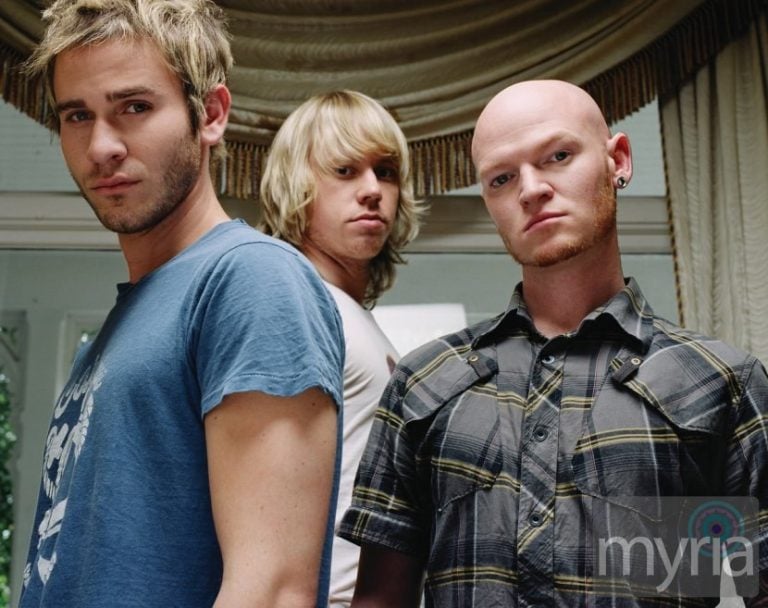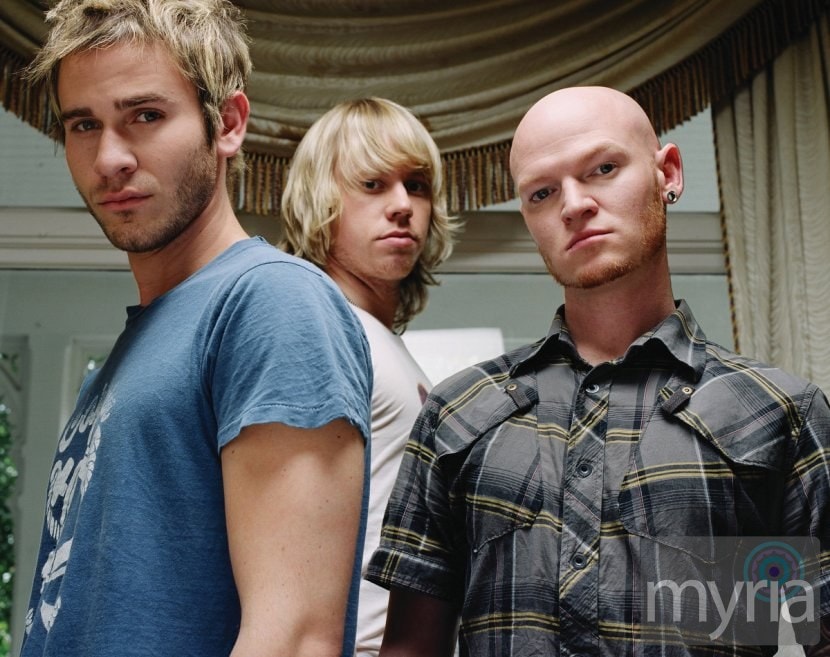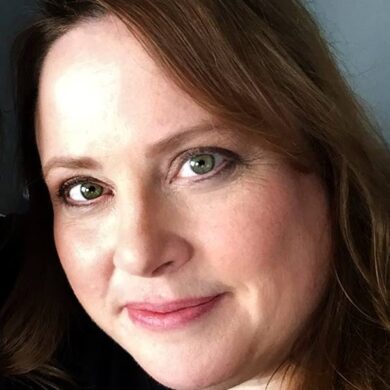Find out about Lifehouse’s musical success in this 2005 interview
If you were anywhere in the United States during 2001, you’ve heard Lifehouse.
You might not know them by name, but their smash hit single “Hanging by a Moment” was inescapable — in fact, it was the most played song on US radio that year. But where has the band been since then?
Well, while it’s taken them some time — four years, in fact — Lifehouse are no longer in danger of being relegated to the one-hit wonder list. Their latest single, the sublimely radio-friendly “You and Me” from their self-titled third album, is their big comeback. At press time, it had already reached number 6 on the Billboard singles chart (neatly sandwiched between the latest from Missy Elliot and Kelly Clarkson).
We caught up with Lifehouse powerhouse Jason Wade — the band’s founder, chief songwriter, lead singer and guitarist — and played a game of 10 questions with the man.
Lifehouse interview: Singer/songwriter/guitarist Jason Wade answers our 10 questions
Nancy J Price: What was your reaction when “Hanging by a Moment” first broke big — and how did that change things?
Jason Wade: I was very, very shocked — all of us were — because our record label was very frank with us and, and let us know how difficult it was going to be out there, and how competitive it is. And they were giving us figures of like only two percent will ever sell like a million records. We realized that if we were going to make it work, we were just going to have to really work hard and tour a lot and develop a very strong fan base. So when the song started taking off on its own, we didn’t think it was going to be that easy. We were all completely shocked and enamored with the whole experience. I was only 20 years old.
When the single started doing really well, we started making some more money — life becomes a little bit easier than being a starving musician playing clubs. That’s great for me, because when I’m worried and stressed out about money, it takes away from my songwriting. It’s given me the opportunity not to worry about that stuff, just to worry about the things that really matter to me, which is lyrics and music.
NJP: Do you think your age, or your relative youth at that time, was a good thing? I would imagine you see things pretty differently now.
Jason Wade: Absolutely — we definitely have changed the way we view the business as of now, five years later. Obviously, back then we were so green and new, we didn’t really know how to run our business, so we spent probably more money than we should. Now, I think we’ve kind of learned how the whole business works a little bit more, which is I just think a part of growing up. But we needed all those experiences to learn and grow.
NJP: Did you really hyperanalyze what made “Hanging by a Moment” such a big hit — why it caught on?
Jason Wade: Yeah, oh — everyone did. I mean, I read a bunch of reviews of why people thought that it was just the right timing in rock radio and all this stuff, and pop radio wasn’t playing that much rock music. A lot of people had different theories of why it did so well, and now I just try to stay out of it. I think if people figured out how to do it every time they would, and then every record company would be rich!
It has a lot to do with timing, it just has a lot to do with luck — you know, just being in the right place at the right time.
NJP: Right after that success, I know a lot of people asked you if you felt pressured to come up with another hit. Looking back on what you’ve been doing since then, do you feel that same pressure, or are you just happy with what you’re doing?
Jason Wade: I really felt a lot of pressure on the second record that we put out, because everyone was kind of putting us under a microscope and trying to figure us out — like to figure out if we were a rock band, if we were a pop band — where we kind of fit in in the whole music scene. That kind of got under my skin a little bit, and really tried to appease certain crowds a little bit more than just being myself and just writing the music that I naturally write.
A lot of people — from the label and management — were all trying to put pressure to follow up the success of the first record, and when it didn’t do as well as the first record, it really dawned on me that I really just need to be myself and kind of just make the music that I write. That’s when I’m the most successful. So we got to do that on this record, and we’re really happy with it.
NJP: So this is really the first time you’ve gotten back to just being yourself?
Jason Wade: Absolutely. This record really reminds me of the first one, because on the first record I had no pretense, I had no fan base, I never had a song on the radio. So I didn’t have all that pressure of where it’s going to fit in — I could just kind of be creative and just make all my music, and then hopefully people would respond to it. And that’s kind of what we did again on this one — we just wanted to make the best music that we could, and then not worry about who’s going to respond to it. That seems to be the best formula for us.
NJP: From the first record to the most recent, what really drives you — motivates you?
Jason Wade: I’m a very competitive person no matter what I do, whether it’s sports or life in general, and I think after that second record, I really wanted to continue this thing and make it work. I mean, obviously I can’t control having top ten hits or whatever, but just to be the best that we could be as a band, as a live touring act, and just making records. I want it to be the best that it can be. I don’t want to just make a halfway good record, I want to make it the best. And I’m mainly competitive against myself, like I don’t want to write the same song over and over again. I want to continue to grow and evolve and change.
SK: Especially considering your desire for change, right now, what would you say are your goals going forward?
Jason Wade: I think if we can stay on the road for a year and a half, and really make this record work, and connect with our crowd, because I think we lost a lot of fans on the second record. We kind of — don’t want to say we were self-indulgent, but we were definitely trying to make this creative rock record that I don’t think anyone really wanted to hear. I think I really had a healthy dose of why people have connected with us, and it’s mainly because the lyrics, and that the songs that are very honest.
The second record was a little bit more abstract lyrically. It’s hard to go to that place where you’re completely vulnerable and honest, because you have to sing those songs every night. It’s basically like reading pages out of your diary. I’ve kind of gotten back to that on this record, and I think that if we can just really make this work, and stay out on the road and tour, then that’s my main goal for the next two years.
NJP: Is it hard to address those tough issues, and to allow yourself to be that vulnerable?
Jason Wade: I just remember that I’m not alone in the things that I’m feeling, and that there are people coming to the shows that have gone through similar experiences. A lot of fans come up and they thank us for putting into words what they feel but they can’t express. The fact that we can convey something that makes them feel a certain emotion or feel a little bit better about their situation. Even though I’ve gone through similar hardships, it makes me feel a little bit better by playing those songs for them. Even though it is a little difficult, I just try to remember there are other people connecting to that.
NJP: How else do you connect with your fans?
Jason Wade: At the shows, right after we get off stage, we cool off for about fifteen minutes and then we go sign autographs for about an hour and half every night and get to talk to everybody. To me, that’s probably the best part — to get to hear people’s stories and hear how your music has impacted them. I think without that, you don’t have a healthy perspective of what you’re doing, because really, you’re not playing music for yourself. You’re playing music for your fans — trying to pick the songs that they want to hear. They’re paying for the tickets to come see you, so I think it’s a little self-indulgent sometimes when bands decide not to play their hits and don’t really take care of their fans.
I think that’s they’re the most important part of all this. I know that without them we’d be playing to empty clubs. I think people take that for granted sometimes — that people show up, and drive three hours out of their way to come see you play live. We’re just giving it one hundred and ten percent on stage, and really trying to pick their favorite songs to play, because we’re doing it for them.
NJP: When Lifehouse is over — say in twenty years from now — how do you want the band to be remembered?
Jason Wade: I think we’re going to be one of those bands — obviously we don’t do huge press stunts or whatever — and I think we’re going to be remembered by our songs, hopefully. The way it’s going right now, I’m hoping we can just connect to people in a time of their life where they’ll just remember a moment where a certain song kind of touched them. It seems to be going like that at the shows — in just talking to people, a lot of people have been saying that a lot of our songs are going to be in their wedding.
There’s a song called “Everything” on our first record that like four people on this tour have said that that’s going to be their wedding song. So I think if you can connect with someone on that level, they’ll always remember you for a certain moment in their life.
This article originally appeared on SheKnows.com in 2005










